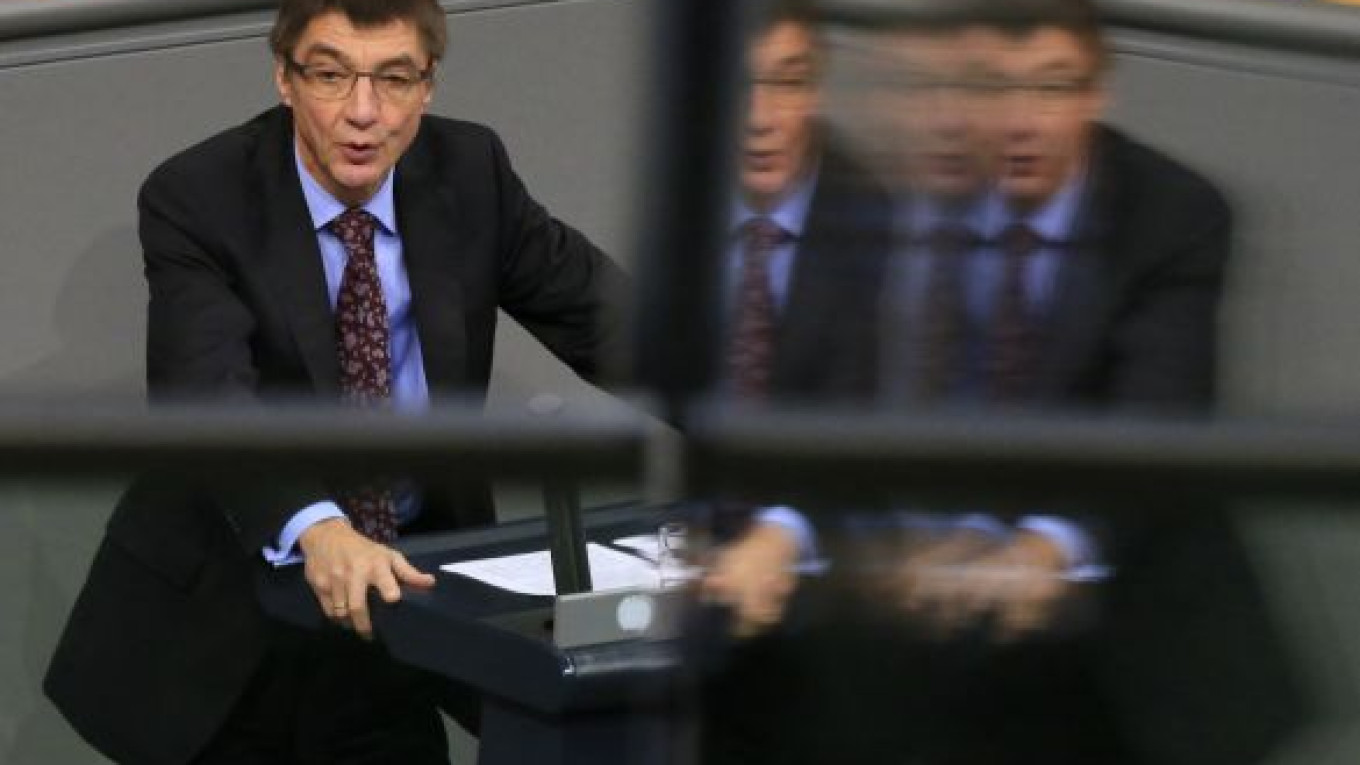BERLIN — German lawmakers have expressed alarm at the state of human rights in Russia since Vladimir Putin returned to the Kremlin in May and urged Chancellor Angela Merkel to press Moscow on its treatment of critics when she visits this week.
A parliamentary motion, written by Merkel's center-right coalition parties, asks the German government to campaign for greater democracy and rule of law in Russia, as well as seeking just treatment for anti-Putin campaigners such as jailed members of the punk group Pussy Riot.
Although Friday's motion is nonbinding, it increases the pressure on Merkel to take a tougher stand on Russia and strain her relations with Putin, which have never been warm.
"Russia has taken legislative and judicial measures since May 7 aiming to control active citizens, criminalize critical engagement and create a confrontational course with government critics," Andreas Schockenhoff, a lawmaker from Merkel's Christian Democrats, told parliament.
"When … democratic standards are reversed, rule of law is restricted and repressive tendencies are accentuated, we can't stand by indifferently. It fills us with deep concern," said Schockenhoff, the government's coordinator for Russian and German civil ties.
But he said that far from isolating Moscow, Germany wanted to strengthen relations.
Merkel will hold talks with Putin on Nov. 16, before a larger group of Russian and German ministers discuss energy and business ties.
Her visit to Russia coincides with the end of the Petersburg Dialogue, an annual conference in which German and Russian businesspeople, lawmakers and civil organizations discuss the state of their relations and areas for development.
In Moscow, the Foreign Ministry has already hit out at Schockenhoff, saying it refuses to recognize him as a representative of the German government. Schockenhoff is due to chair discussions on civil society at the Petersburg Dialogue.
Schockenhoff said in an interview last week that the motion was not a form of meddling but rather showed German lawmakers wanting to encourage what he described as a very lively discussion taking place in Russia itself.
Berlin has grown increasingly disappointed with Russia's course under Putin and his predecessor, Dmitry Medvedev, who is now prime minister.
By contrast, Merkel's predecessor, Social Democrat Gerhard Schroder, cultivated a hearty rapport with Putin, referring to him as a "flawless democrat."
Schroder now works as chairman of Gazprom's Nord Stream gas pipeline from Russia to Germany. He has adopted two children from Russia.
A Message from The Moscow Times:
Dear readers,
We are facing unprecedented challenges. Russia's Prosecutor General's Office has designated The Moscow Times as an "undesirable" organization, criminalizing our work and putting our staff at risk of prosecution. This follows our earlier unjust labeling as a "foreign agent."
These actions are direct attempts to silence independent journalism in Russia. The authorities claim our work "discredits the decisions of the Russian leadership." We see things differently: we strive to provide accurate, unbiased reporting on Russia.
We, the journalists of The Moscow Times, refuse to be silenced. But to continue our work, we need your help.
Your support, no matter how small, makes a world of difference. If you can, please support us monthly starting from just $2. It's quick to set up, and every contribution makes a significant impact.
By supporting The Moscow Times, you're defending open, independent journalism in the face of repression. Thank you for standing with us.
Remind me later.


